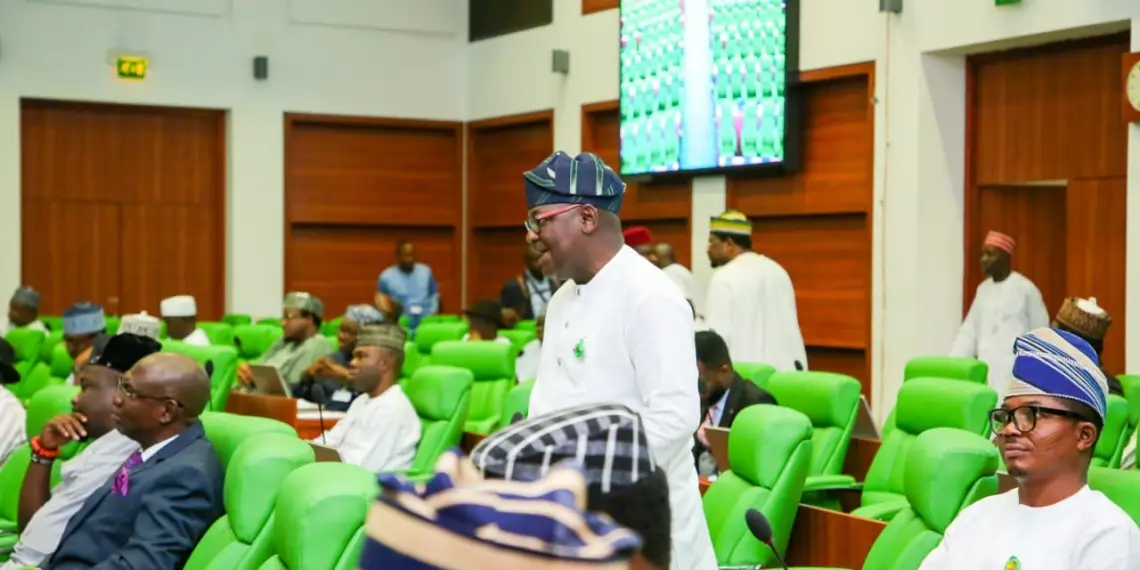The lawmaker said the current debt crisis rocking the US student loan scheme should not deter Nigeria from implementing its own scheme, stating that some countries have successfully implemented the scheme without running into crisis.
Chairman of the House of Representatives Committee on Tertiary Education, Isiaka Gboyega, says Nigeria will ensure the sustainability of the student loan scheme and avoid the path taken by the United States.
Mr Gboyega said the current debt crisis rocking the US student loan scheme should not deter Nigeria from implementing its own scheme, stating that some countries have successfully implemented the scheme without running into crisis.
The lawmaker stated this on Thursday during a press conference on the Student Loan Act recently signed into law by President Bola Tinubu.
US student loan crisis
The US loan scheme has become a major political discourse recently as millions of Americans are grappling with mounting unpaid student loans.
As of December last year, President Joe Biden administration had written off nearly $138 billion in student debt for almost 3.9 million borrowers through more than two dozen executive actions.
The 3.9 million beneficiaries are still a far cry from the 43 million people targeted by Mr Biden, who had during the campaign years ago promised loan forgiveness.
However, the president is facing obstacles in the planned loan forgiveness.
In June 2023, the US Supreme Court ruled that the Biden administration overstepped its authority last year when it announced that it would cancel up to $400 billion in student loans.
The Biden administration had said that as many as 43 million Americans would have benefitted from the loan forgiveness programme; almost half of those borrowers would have had all of their student loans forgiven.
Despite the challenges with the scheme in the US, Mr Tinubu promised the introduction of the student loan during his presidential campaign in 2023.
The Access to Higher Education Act, 2023, otherwise known as the Student Loan Act, was signed into law by President Tinubu as soon as he assumed office in 2023.
But many Nigerians criticised the law, describing it as a Greek gift, even as they condemned the eligibility criteria for applicants and the repayment plans.
Two weeks ago, Mr Tinubu sent the legislation back to the National Assembly with clauses to address some of the challenges in the previous law. Within seven days, the two chambers passed the new bill as proposed by the executive.
We can be better than US—Gboyega
While acknowledging the challenges the scheme is facing in the US, Mr Gboyega said just because that the scheme is facing a debt crisis does not mean that Nigerians would encounter similar experience.
He stated that some countries in Latin America have successfully managed the scheme for years without falling into crisis.
“Whatever that is happening in the US has not discredited the scheme. Yes, there are challenges, and there are challenges everywhere. America does not have the best of what we have.
“I am aware of that, but it has not taken away the benefit of the loan scheme. What is important is for us to learn from their mistakes. This scheme has been in existence in Colombia since 1951. The scheme is quite popular in Latin America,” he said.
On the impact of unemployment on repayment of the loans, Mr Gboyega said the country must work to address the challenges associated with unemployment.
He said the inclusion of vocational training schools shows that the government is committed to addressing unemployment.
The lawmaker insisted that there are sufficient clauses to protect unemployed graduates in the scheme.
“Unemployment is there, that is an issue. Our prayer is that we are able to produce the right kind of people that can add to productivity. Don’t forget that this loan scheme covers tertiary and vocational schools. They are all covered under it.
“Under the law, repayment starts after two years of NYSC. We don’t pray and expect that the unemployment level would continue the way it is,” he said.
Why private schools are exempted— Gboyega
The lawmaker also reacted to the exclusion of private schools from the scheme, stating that the demand for student loan schemes in private schools would be low.
He noted that the fund may in the future create funds to address the needs of the private schools.
“For anyone that has the capacity to send his/her children to where—some of those private schools, you would agree with me that the need for a loan of this scheme is probably minimal,” he said.
Section 23 of the Act states that only students in public schools are eligible for the scheme.
“An applicant for a loan under this Act must be a citizen of Nigeria;
“Have secured admission into any university, polytechnic, college of education school established by the Federal Government or State Government, or a vocational or skills acquisition school licensed by the Federal Government.”
The government has yet to announce a date for the commencement of the scheme.

